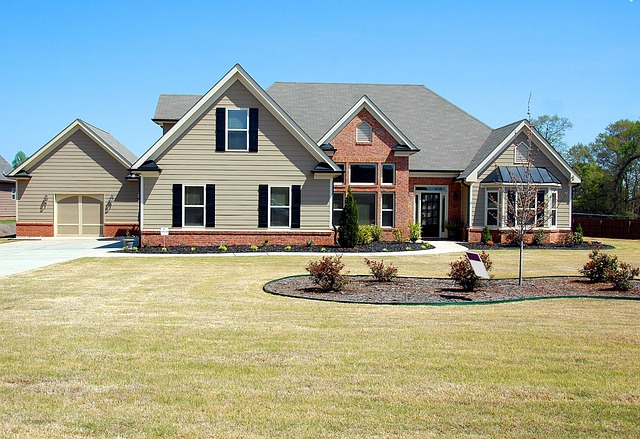2023 continues to see Executive Condominiums (ECs) in Singapore as a valuable and affordable housing option for eligible upgrading families. The Housing & Development Board (HDB) has updated the eligibility criteria for ECs, ensuring they remain accessible to those who qualify. Prospective homeowners must be Singaporean Citizens without existing ownership or outstanding flats from the Open Market, and their income must not exceed S$14,000 for a five-room EC or S$12,000 for a four-room EC if they have children. The Minimum Occupation Period (MOP) is five years post-takeover before an EC unit can be sold on the open market or upgraded to another property. First-time homeowners, both singles and couples, are prioritized, with additional considerations for complete family units under the Family Nucleus Multigeneration Public Scheme (FNS), potentially accommodating up to five generations. In 2023, staying informed about policy updates, income limits, household size, and MOP is crucial for navigating the EC market effectively, as these factors will determine the affordability and accessibility of these dual-use properties under Ec Singapore 2023.
In 2023, navigating the intricacies of Executive Condominium (EC) eligibility in Singapore’s dynamic housing market is a pivotal step for many aspiring homeowners. This article delves into the nuances of EC regulations, tailored for the current year. From understanding the eligibility criteria to grasping the implications of the Five-Year Minimum Occupation Period (MOMP), we explore the key factors that determine one’s suitability for an EC in Singapore. Whether you’re a single applicant, a couple, or part of a larger family nucleus, this guide will illuminate the path to EC ownership in 2023, including insights into resale and new launches, as well as the potential shifts in eligibility that may shape the future housing landscape. Join us as we demystify the journey towards securing an EC in Singapore this year.
- Understanding Executive Condominium (EC) Eligibility in Singapore's Housing Market for 2023
- The Five-Year Minimum Occupation Period (MOMP) and Its Implications for EC Applicants
- Maximizing Your Eligibility: Joint Single Application and Other Key Considerations for ECs in Singapore
- EC Eligibility for Singles and Couples: Navigating the Rules for First-Time Homeowners
- The Role of Family nucleus in EC Eligibility: What Constitutes a Complete Family Unit Under the Current Framework
- Beyond Resale and New Launches: The Future of EC Eligibility in Singapore's Housing Landscape 2023
Understanding Executive Condominium (EC) Eligibility in Singapore's Housing Market for 2023

In 2023, navigating the eligibility criteria for Executive Condominiums (ECs) in Singapore’s housing market is a pivotal step for prospective homeowners. ECs offer a golden middle ground between public and private housing, designed to cater to the needs of upgrading families with greater affordability. To qualify for an EC application, applicants must first satisfy the Singaporean Citizen (SC) requirement; at least one applicant must be an SC. Additionally, applicants must not own or have an outstanding flat from the Open Market, and their monthly household income should not exceed certain limits. These guidelines are instrumental in ensuring that ECs remain accessible to those who need them most. Furthermore, applicants are subject to the Maximum Subsidy Income Ceiling (MSC) and must intend to occupy the unit for a minimum occupation period. As of 2023, the MSC is set at SGD14,000 for a five-room EC and SGD12,000 for a four-room EC, reflecting the government’s commitment to providing affordable housing options for eligible applicants.
The eligibility criteria for ECs in 2023 are structured to promote fair access while maintaining the sustainability of Singapore’s housing ecosystem. Applicants who meet the primary eligibility requirements may apply for an EC, but they must also consider the resale levies and the enforcement of the five-year Minimum Occupation Period (MOP) before they can sell the unit in the open market. Prospective buyers should keep abreast of the Housing & Development Board’s (HDB) updates on EC policies to ensure compliance with the latest regulations, as these factors significantly influence the eligibility and affordability of an EC in the dynamic Singaporean housing landscape.
The Five-Year Minimum Occupation Period (MOMP) and Its Implications for EC Applicants

When considering the purchase of an Executive Condominium (EC) in Singapore for the year 2023, applicants must be mindful of the Five-Year Minimum Occupation Period (MOMP). This stipulation mandates that applicants must have occupied the EC as their primary residence for at least five consecutive years before they are eligible to sell the unit on the open market or upgrade to another property. The MOMP plays a pivotal role in shaping the long-term planning of potential EC buyers, especially those who anticipate mobility in their housing choices post-five years. For singles, this period begins from the date the EC is taken over, while for families and multi-generational households, it commences once all previous occupation liabilities have been satisfied. This rule not only ensures a level of stability within Housing and Development Board (HDB) estates but also protects the value of public housing for the majority of Singaporeans who reside in such dwelling types. Prospective EC applicants in 2023 must thus carefully consider their living plans against this backdrop to avoid any potential penalties or restrictions on the resale or subletting of their unit after the initial occupation period. Understanding and adhering to the MOMP is crucial for anyone looking to invest in an EC, as it aligns with the broader policy direction of balancing public and private housing needs within the ecological system of Singapore’s property market.
Maximizing Your Eligibility: Joint Single Application and Other Key Considerations for ECs in Singapore

In Singapore, understanding the nuances of Executive Condominium (EC) eligibility is paramount for prospective homeowners looking to navigate the housing market in 2023. The Joint Single Application (JSA) is a critical pathway that allows unmarried individuals or singles to apply for an EC. By leveraging this scheme, singles can maximize their eligibility, provided they meet specific income criteria and have not previously owned an EC. It’s imperative to review the latest regulations set forth by the CPF Board and the Housing & Development Board (HDB), as these bodies oversee the eligibility framework and are subject to updates and changes.
Prospective EC buyers should also be cognizant of other key considerations. For instance, singles or families who have taken Singaporean Citizen (SC) or Permanent Resident (PR) brides or grooms into their home since the last EC application may qualify for an exemption from the 5-year MOP (Minimum Occupation Period). This aspect of eligibility can significantly influence one’s ability to sell or rent out the unit before the end of the MOP, affecting both short and long-term investment strategies. Additionally, those who are looking to upgrade from their current EC to another may find solace in the EC Upgrading Option, which allows them to move up without having to wait for the full 10 years after the purchase of their first EC. In 2023, staying abreast of the latest eligibility criteria and updates is essential for anyone considering the purchase of an EC in Singapore, as these policies can evolve, impacting one’s application and future planning.
EC Eligibility for Singles and Couples: Navigating the Rules for First-Time Homeowners

In 2023, the eligibility criteria for purchasing an Executive Condominium (EC) in Singapore are tailored to cater to singles and couples who are first-time homeowners. To be considered for an EC, singles must not have any existing housing loan or housing grant. Couples must also be first-time applicants without a prior flat owned or bought either from the Housing & Development Board (HDB) or the Residential Property Act. Both singles and couples are subject to an income ceiling of $14,000 per month for households with no children or $20,000 per month for those with at least two children. This ensures that applicants meet the financial requirements set forth by the government.
Furthermore, applicants must fulfill a ‘long-stay’ condition, where they must occupy the EC as their main home for a minimum of 5 years upon obtaining the keys. Couples have an additional stipulation: at least one applicant must be a Singapore citizen. After satisfying the above criteria, and assuming the unit fulfills the housing grants eligibility based on household income, singles and couples can proceed to select their preferred EC under the EC scheme in 2023. Prospective buyers are encouraged to visit the official EC websites for the most updated guidelines and to understand fully the eligibility requirements before making a commitment.
The Role of Family nucleus in EC Eligibility: What Constitutes a Complete Family Unit Under the Current Framework

In Singapore, the Executive Condominium (EC) scheme is designed to offer a hybrid option for aspiring homeowners who may not immediately qualify for a public housing flat but are unable or prefer not to purchase a private property. Within this framework, the composition of a family nucleus plays a pivotal role in determining eligibility for purchasing an EC. As per the guidelines set forth by the Housing & Development Board (HDB) and updated for 2023, a complete family unit is defined as one that includes at least two-generation members, such as a couple and their children. Additionally, if one of the applicants is divorced, widowed, or has adopted children, these individuals can also be considered part of the family unit under certain conditions. The Family Nucleus Multigeneration Public Scheme (FNS) allows up to five generations to live together in an EC, provided they meet the necessary criteria. This inclusive approach ensures that a broader range of applicants, reflecting diverse family structures, can benefit from the EC scheme, which is a testament to Singapore’s commitment to accommodating varied socio-economic backgrounds within its vibrant housing landscape. Prospective EC applicants for 2023 should therefore carefully review the eligibility criteria to ascertain whether their household aligns with the HDB’s definition of a complete family unit, ensuring they do not miss out on this opportunity to own an EC in Singapore.
Beyond Resale and New Launches: The Future of EC Eligibility in Singapore's Housing Landscape 2023

In 2023, the trajectory of Executive Condominium (EC) eligibility in Singapore’s housing landscape is a subject of keen interest among homebuyers and industry observers alike. As the market continues to evolve with both resale and new EC launches, prospective buyers are looking beyond immediate acquisition options to understand the long-term implications of EC eligibility on their housing journey. The Housing & Development Board (HDB) periodically reviews the eligibility criteria for ECs to ensure they remain aligned with the evolving needs of Singaporeans, particularly younger families who often form the primary market for these dual-use properties. In this context, the EC Singapore 2023 narrative is less about past trends in resale and new launches, and more about anticipating and adapting to future policy adjustments that could affect eligibility criteria. Factors such as income ceilings, family nuclear size, and the minimum occupation period (MOP) are areas where potential changes could significantly impact the availability and affordability of ECs for first-time homeowners. As Singapore continues to navigate the challenges of housing supply and affordability, staying informed about the dynamics of EC eligibility becomes increasingly important for those planning their residential future in this segment of the market.
Navigating the nuances of Executive Condo (EC) eligibility in Singapore for 2023 is a complex yet pivotal task for prospective homeowners. This article has shed light on the critical aspects of EC eligibility, from understanding the intricacies of the MOMP to exploring the implications for first-time applicants and the significance of family nucleus within the framework. For singles and couples, maximizing eligibility through joint single applications and other key considerations is essential. As we look ahead, the future of EC eligibility beyond resale and new launches promises to evolve, ensuring its continued relevance in Singapore’s diverse housing landscape. Prospective EC homeowners in 2023 must stay informed and adaptable to the dynamic rules governing these opportunities. For comprehensive insights and up-to-date information on Ec Singapore 2023, it is advisable to consult official sources and real estate experts.



